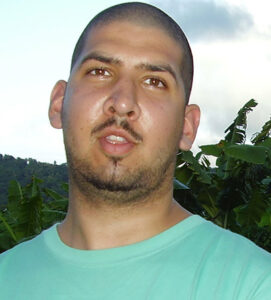By Lincoln DePradine

Caribbean countries, which are at various stages of discussions on legalizing and decriminalization cannabis, must be careful about making mistakes that could result in loss of revenue now being generated from the herb, according to author and university instructor Dr Kevin Edmonds.
The nations of the Caribbean, while also looking for international markets to export cannabis, need to “protect’’ what they now have, Edmonds told an online panel discussion.
The panel discussion was organized by Chris Ramsaroop, an instructor in the Caribbean Studies Program at the University of Toronto.
“Cannabis Capitalism: Race, Labour and Resistance in the Era of Legalization’’, was the title of the panel discussion.
“Each year, I open my class to the broader community to engage in a conversation of issues related to the course that I teach and to also engage the community in dialogue,’’ Ramsaroop said in welcoming remarks.
Edmonds, also a Caribbean Studies Program instructor who has visited the Caribbean as part of his academic studies and research work, said cannabis – popularly known as marijuana and weed – was introduced to Trinidad through the importation of indentured labour from India.
Plantation owners, he said, allowed the use of marijuana over rum and, up until the 1920s, it was legal to sell cannabis.
For decades, marijuana users and growers have faced arrest and jailing. However, the Caribbean has been following the trend of developed countries such as Canada and the United States, easing penalties related to marijuana, with discussions being held on possibly establishing formal cannabis industries in the region.
In January, St Vincent and the Grenadines exported a cargo of 110 pounds of medical cannabis to Germany. It was the first country in the Organization of Eastern Caribbean States sub-regional grouping to be granted permission for the export of medicinal cannabis.
“St Vincent and the Grenadines is ready for global business in the medicinal wellness industry space,’’ said the country’s agriculture minister Saboto Caesar.
But, Edmonds thinks that too much focus is being placed on cannabis being exported internationally.
“Everyone has forgotten about domestic and regional markets,’’ said Edmonds, whose doctoral thesis was, “Legalize it? A comparative analysis of the cannabis economies of St. Vincent and St. Lucia”.
“The way that cannabis has been sold to people is that you’re going to be a millionaire. There’s no in-between and I think that is a really bad way to look at it.’’
Edmonds, referring to his research studies in St Lucia and St Vincent, said: “What I was able to show in my work is that cannabis, while it was illegal, gave more money to the local economy, at the peak of banana production in early 90s. That’s huge.’’
Edmonds emphasized that it’s important for Caribbean countries to know the amount of money that marijuana has been contributing to their economies.
“So that when we make a decision to legalize and allow investors to come in, that we have a baseline for saying we know what we are worth. A lot of times, those studies haven’t taken place,’’ said Edmonds.
“A lot of the government are so eager for a quick cash infusion, that they are going to really do more damage through legalization, than if they had actually taken a more measured and cautious approach.’’
Edmonds warned that If the entire world legalizes marijuana, the Caribbean is “not going to be able to sell to anyone. If anything, we’ll be importing cannabis’’, said Edmonds, from countries that can grow cannabis cheaper.
L.J.I.


